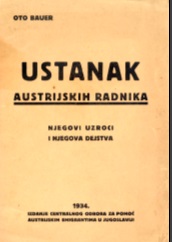
We kindly inform you that, as long as the subject affiliation of our 300.000+ articles is in progress, you might get unsufficient or no results on your third level or second level search. In this case, please broaden your search criteria.

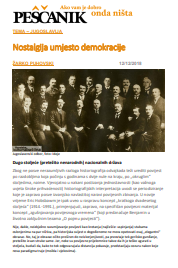
Zbog ne posve nerazumljivih razloga historiografija od vajkada teži urediti povijest po razdobljima koja počinju s godinama s dvije nule na kraju, po „okruglim“ stoljećima, naime. Vjerojatno u nakani postizanja jednostavnosti (kao važnoga uvjeta široke prihvaćenosti) historiografijskih interpretacija uvodi se periodiziranje koje je zapravo posve izvanjsko na vlastitoj naravi povijesnih zbivanja. U novije vrijeme Eric Hobsbawm je ipak uveo u raspravu koncept „kratkoga dvadesetog stoljeća“ (1914.-1991.), primjenjujući, zapravo, na specifičan povijesni materijal koncept „zgušnjavanja povijesnoga vremena“ (koji predznačuje Benjamin u životno zaključnim tezama „O pojmu povijesti“).
More...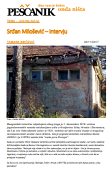
Beogradski istoričar objašnjava zbog čega je 1. decembra 1918. većina jugoslovenskih naroda oduševljeno ušla u Kraljevinu Srba, Hrvata i Slovenaca, da li je već Vidovdanski ustav iz 1921. nekima od njih srušio iluzije o mogućoj ravnopravnosti unutar nove države, šta je jugoslovenskim narodima donio AVNOJ i je li SFRJ zaista bila “naša prva Evropa”.
More...
„Neka bude zapisano da ja, kao dobar Španac, protestujem protiv tog termina španska groznica“, zabilježio je 1918. godine madridski ljekar Eduardo García-Triviño López. Za razliku od ostalih (uglavnom zaraćenih) evropskih zemalja, u medijskom prostoru (neutralne) Španije nije prećutkivana pojava novog razornog gripa. Tako je prerogativ najsmrtonosnije pandemije 20. stoljeća dobio ime po jednoj državi i jednom narodu.
More...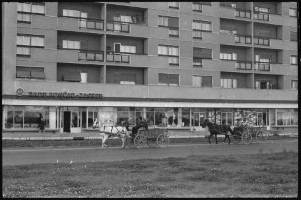
Iako su revizionistički udar iz devedesetih koji je, tek donekle kamufliran, ostao aktivan do danas ipak preživjele neke osobe iz komunističkog i antifašističkog pokreta, ponajprije zbog toga što su tvornice nosile njihova imena, izgleda da je Rade Končar ostao najveća crvena krpa hrvatskim desničarima. Svakako puno veća od Josipa Kraša ili Đure Đakovića. O razlozima zašto je tome tako možemo samo nagađati, ali ipak dovoljno utemeljeno. Končar je bio Srbin, komunist i partizan, što je već dovoljno za histeričan odnos prema njemu, ali nekako sam dojma da nije samo to u pitanju. Rade Končar je, naime, bio organizator ustanka u Dalmaciji i simbol otpora, čak i pred streljačkim vodom. Jednako kao Stjepan Filipović pred vješalima. Istina je da je ta organizacija ustanka često bila tragična kao u slučaju stradanja Prvog splitskog odreda i da ga je karakterna svojeglavost na kraju koštala hapšenja i odvela ga u smrt, o čemu svjedoči Vicko Krstulović u svojim memoarima, ali oni kojima je Končar trn u oku danas, ništa ne znaju o tim nijansama, niti ih one suštinski zanimaju. Za njih je Rade Končar neprijatelj jedan kroz jedan. Toliki da se pretprošlu zimu jedan od splitskih desničara poželio obračunati s njegovom bistom na Bačvicama koja mu je u ironičnom raspletu slomila nogu, da bismo ovih dana vidjeli drugi napad na njega, ovaj put u Šibeniku u kojem je Končar i ubijen. I opet jednako bizarno.
More...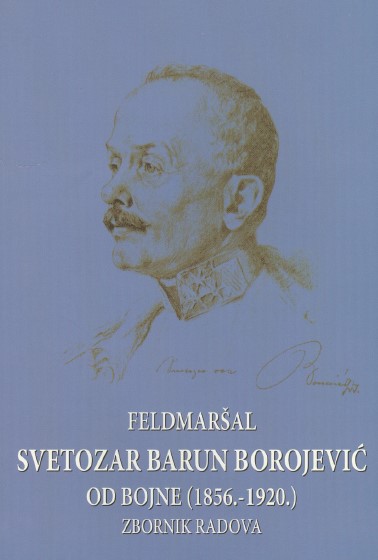
Field Marshal Svetozar Boroević (Borojević) von Bojna (Umetići, 13 Dec. 1856 - Klagenfurt, 23 May 1920) was an exceptional personality in Croatiaʼs military history. His exemplary life and wartime career could not, based on the prevalent rules of war of that time, secure him any kind of post-war livelihood, and as a participant on the losing side he endured all of the consequences imposed upon the defeated by the victors, and he found almost no understanding among his fellow nationals. He contacted many in the belief that an honourable life merited honourable treatment, but this was not borne out. The knowledge that all of the previous values had disappeared, and his subsequent fall into hardship and oblivion must have certainly led to his untimely death in 1920. Many years of silence followed thereafter, until 2007, when Boroević, as a Croat of Orthodox faith, was once more spoken of with respect.
More...
The First World War, the Great War, undoubtedly constituted a watershed event for the Slovenians as well and for the history of the Slovenian ethnic territory. The Slovenians participated in various stages of the world conflict; they were soldiers and prisoners of war, they were arrested and interned, and they were fugitives, while one of the bloodiest European battlefields, the Isonzo front, extended over Slovenian territory. The war in Slovenian territory manifested itself at two levels: as military operations in the region around the Isonzo (Soča) River, and as a burden to the civilian population, but near the battlefield and in its hinterland. Thus, the First World War imprinted itself into Slovenian historical memory. Slovenian historiography mostly examined the political facts underlying the First World War, while military themes were left to publicists and memoir writers. Until the 1990s, Slovenian historiography did not have a planned and systematic approach to the First World War, primarily due to the role of the Slovenians in this great world conflict and the military objectives intertwined with this conflict. One cannot escape the impression that the Slovenian people, as a component of the Austro-Hungarian armed forces, were the initiators and losers of this “great” war. And the periods following both World Wars were not kind to the losers. Treatment of the First World War depended on changes in society and on the needs of day-to-day political interests to confirm their developmental orientation. It should be stressed that Slovenian memories of World War I are almost entirely dominated by publicist literature, while Slovenian historiography began to deal with it systematically only in the mid-1980s. To be sure, in dealing with the Isonzo front, Field Marshal Svetozar Borojević von Bojna occupies a special place, for he provokes contradictory assessments in Slovenian recollection, although his role and significance to Slovenian territory have not be adequately examined. This work presents all previous literature on Borojević and assessments by various authors, as well as memoirs of Slovenian post-war politicians, on the role and significance of Borojević in Slovenian history.
More...
The author briefly reviews the pamphlet written by Svetozar Borojević with the title “On the War Against Italy”, which was published in Ljubljana in 1923, translated by Lt. Col. Mile J. Kasumović, in editions in both the Latin and Cyrillic scripts. It had a foreword written by Hugo Werk under the pseudonym Adriaticus. In it, Borojević refuted the claims made in the daily command of the Italian military’s supreme commander, Marshal Diaz on 4 November 1918, i.e., only a day after the signing of the truce with the already fallen Austria-Hungary, that the Italian army, although weaker in numbers and supplies, had won the war. He demonstrated that the Italians had five times the number of infantry troops and an artillery that was ten times stronger, but that the western powers still had to save Italy from complete collapse during the war. The Ljubljana edition of “On the War Against Italy” received a positive review in 17 November 1923 edition of the newspaper Agramer Tagblatt, a Zagreb-based German-language periodical, which particularly highlighted this concluding observation made by Borojević: “Italy can back its arguments in all possible ways at the peace conference, but not on the basis of the sanctity of treaties and the success of its arms”.
More...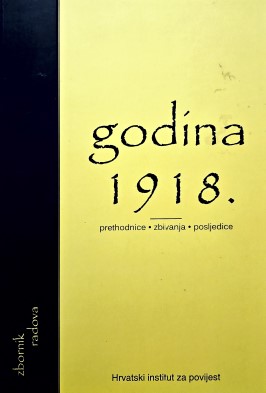
The historiographical literature overemphasizes the support of Bosniaks for the creation of a Yugoslav state. The commonplace notion is that Bosniak interests were more truly expressed by the Secretary of the Chamber of Commerce (Mehmed Spaho) than by the political leader who was the most influential up to that time (Šerif Arnautović). For a long time Bosniak political leaders held to unclear politics in terms of the postwar position of Bosnia and Hercegovina. In the end, however, the supporters of Yugoslav unification showed themselves to be the dominant force. The proclamation of the formation of the State of Slovenes, Croats, and Serbs, which included Slovenia, Croatia, Vojvodina and Bosnia and Hercegovina, was accepted with jubilation among a part of the population of Bosnia and Hercegovina. General Sarkotić, the chief of the Territorial Government of Bosnia and Hercegovina, wrote in his diary (Dnevnik) at the time of its formation: “In Sarajevo itself the happiness of the Serbs appears exaggerated, it seems, to a certain measure to have sobered the Croats and Muslims, but the women and youth show themselves on the streets more in national cockades which then everyone generally wears.”
More...
As the years after 1918 passed under the clouds of economic instability, shortages, social and political upheaval Osijek’s economic spheres following the unification of the State of Slovenes, Croats, and Serbs with the Kingdoms of Serbia and Montenegro (1918) had to adjust their activities to new circumstances. Namely, the previous centres of Austro-Hungarian Monarchy (Vienna, Graz, Budapest, Pecs, Villany, Barcs, Trieste, etc.) to which they were linked by internal commercial, financial, and other ties were all of a sudden on the other side of the state’s boundaries, that is abroad, while the foreign territories of Serbia and Montenegro became domestic land. At the same time the establishment of the new state upon the demise of the Austro-Hungarian Monarchy required the resolution of problems tied to the transit of goods and the completion of commercial contracts with neighbouring countries, as well as the arrangement of taxation, transportation, customs, financial and other matters. All of this directly affected the interests of Osijek’s economic spheres which, despite a developed industrial base, trades, commercial sector and banking system, did not come to full fruition in the new state. The previous conditions of life changed because Osijek began to be left behind Zagreb. Nevertheless, even in the new conditions, due to Osijek’s favourable position along the Drava in terms of transport, a rather quick economic revival was guaranteed.
More...
The purpose of this introductory article is a consideration of options that autobiographical sources can offer to historiographical study of the First World War. Accordingly, the first chapter is a chronological overview of the historical works on the First World War published in Croatia and – to a lesser degree – in the whole region, which generally indicates that incorporated themes, putting aside methodological innovation, and partly even their conclusions have directly reflected political and social turbulences from 1918 to 1991. Apart from including larger number of researchers and having better material conditions, British, French, American, German and Australian post-1918 historiographies have generally been developed with significantly more autonomy and without neglecting methodological considerations, especially those concerning auto-biographical sources. The second chapter is therefore an attempt to fill – at least in the short lines – this gap in Croatian historiography, while the third is interested in the not always harmonious touch between historiography and literary theory. The fourth chapter presents a draft of relevant Croatian autobiographical literary corpus, a description of its general features, and an outline of the answers to some of the possible research questions.
More...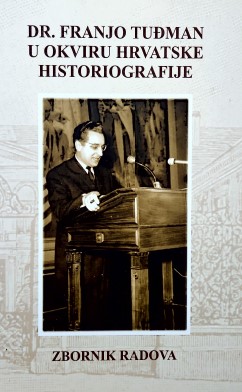
Franjo Tuđman’s views on World War I and the immediate postwar period constitute a minor, but still important part of his multileveled opus. Tuđman believed this period to have been one of the key turning points in modern European history, with a distinct and complex impact on Croatia’s position. In his opinion, the outcome of the war caused Croatia to lose its historical statehood attributes that had been present to a limited extent in its subdualist position in the Habsburg Monarchy, only to disappear altogether in the monarchist Yugoslavia after 1918. On the other hand, he advocates the real political opinion that the disintegration of Austro-Hungary had been an unavoidable historical moment, since this multiethnic community had failed to find a key to the solution of the burning national question. Still, the outcome of the war, out of which the members of the Entente and their military allies emerged as the victors, was the decisive influence on the collapse of the existing system in Central and South East Europe. His ideas about this area of history, a product of his research into an extensive number of historical sources and literature, were later incorporated into his political practice, which is evident in his striving to establish a pluralism of political parties after he took over Croatia’s helm in the process of Croatia’s abandonment of Yugoslavia.
More...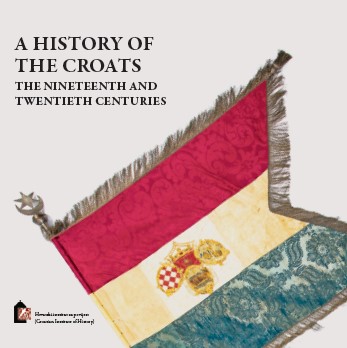
The transition from the 19th to the 20th century saw a series of changes in the political life of the Kingdom of Croatia and Slavonia, which heralded the arrival of a new era. Despite the restrictions imposed by the dualistic structure of Austria-Hungary and the fragmentation of the Croatian lands, the period of economic growth, changes in the social structure of the population, and the need to reassess the position of Croatia within the Monarchy accelerated a number of processes. In the field of politics, there was room for the emergence of new parties and other political organizations, which created a multi-party scene with participants of various profiles. However, the key determinants from the earlier period were still obvious. The revised Croatian-Hungarian Settlement was still seen by the opposition leaders as a major obstacle to achieving the aspiration of financial autonomy and territorial unification. The Croatian lands remained divided, whereby the separation of Dalmatia from the northern territories was considered as particularly problematic. Despite the constitution using the term Triune Kingdom of Croatia, Slavonia, and Dalmatia, the opposition’s appeals for reintegration were persistently rejected. Nevertheless, after prolonged efforts, the process of demilitarization and unification of the former Croatian-Slavonian Military Frontier with Banal Croatia was successfully completed. Thus, the Militärgrenze ceased to be an instrument of Vienna’s imperial policy. The new administrative regulation organically reconnected it with its natural environment.
More...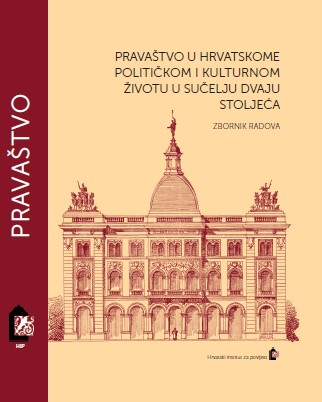
Even though ‘Rightist’ ideas first appear in Dalmatia at the end of the 1860s and the beginning of the 1870s, and the first ‘Rightist’ groupings in the 1880s and early 1890s, it is not until the summer of 1894 that the Dalmatian Party of Right is founded. Following Prodan’s religious-‘Rightist’ group, which appears at the beginning of the 1880s, Trumbić-Supilo’s liberal-‘Rightist’ group appears in the mid- 1880s, and then at the beginning of the 1890s Biankini’s Croatian Club is formed. These three ‘Rightist’ groups come together at a founding conference in Zadar on 22 August 1894 to create a united Party of Right in Dalmatia. At its head sat a 16 member Central Committee, to which were subordinated three regional commit-tees for north, central, and southern Dalmatia as well as several urban committees and party commissioners. The first president of the Central Committee and the Party of Right in Dalmatia was Rev. Josip Kažimir Ljubić. Following its foundation and organization throughout the region the party actively takes part in the elections for local government, the Dalmatian Sabor, and the Imperial Council in Vienna. At all three levels of government, the Party of Right achieved good results, becoming the second party in Dalmatia in terms of political strength and number of representatives. A few years after the split in the party in Croatia-Slavonia, a similar split occurs among the Dalmatia ‘Rightists’ leading to the creation of the Party of Pure Right in 1898, in which Don Ivo Prodan played a leading role. Unlike this party, which remained on the sidelines rejecting the politics of the “new course,” the bulk of the Dalmatian Party of Right, led by Trumbić, Supilo, and Biankini, set in motion a new politics in Croatia in the spring of 1905 in Split by uniting with the remnants of the old National Party to form the Croatian Party.
More...
On the basis of archival sources this article analyzes the circumstances surrounding the formation of the Club of Starčević’s Croatian Party of Pure Right in Sarajevo (1909), and especially the activity of its prominent members and adherents during the First World War. On the basis of memoranda directed to Emperor and King Charles I (IV) the activities of the members and supporters of the Club are analyzed. During the war the ‘Rightists’ of Bosnia-Hercegovina were in favour of a reconstitution of the Austro-Hungarian Monarchy on a Trialist, or Sub-Dualist, basis in order to create a whole Croatian state within its framework to which Bosnia and Hercegovina would be joined. In the twilight of the Monarchy this initiative was reconfigured toward a federalist model of the Monarchy’s reorganization in the belief that the victorious Entente, should it choose to preserve the Monarchy, would insist on its reorganization as a federal state based on the self-determination of nations. Likewise the ideas of the Bosnian and Hercegovinian Serbs and Muslims concerning the constitutional reorganization of the Monarchy are analyzed, wherein the Serbian notions for the most part were in line with the program of the so-called May Declaration of the Yugoslavian Club of the Imperial Council (1917), while the majority of the Muslims called for an autonomous Bosnia and Hercegovina within the framework of the Monarchy. At the same time the author points out that most of the Croatian politicians in Bosnia and Hercegovina supported the May Declaration and worked toward the restoration of the Bosnian and Hercegovinian Sabor (Parliament). On the basis of an analysis of the attitude of the leading political representatives of the two ruling nations of the Dualist Monarchy, the Austrian Germans and the Hungarians, toward the above mentioned attempts, it is clear that they were not considering a revision of the Dualist system, rather, they were hoping to strengthen it on the basis of a kind of sub-Dualism with the inclusion of Serbia and Montenegro within the Monarchy. At the same time the Hungarians continued to try to attach Bosnia and Hercegovina to the Hungarian part of the Monarchy as a corpus separatum. The author directs attention to the resistance of Croatian political leaders in Bosnia and Hercegovina to the efforts to bring Serbia and Montenegro within the framework of the Monarchy, because they felt that any increase in the number of Serbs within the framework of Croatia and Monarchy was in the long-term perspective a threat to their survival.
More...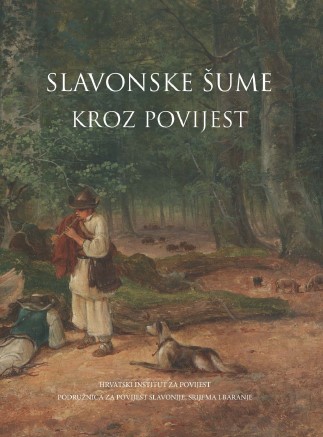
The exploitation of the forests comprised felling and the development of forest assortments, their removal, transportation, sale and delivery to customers, i.e. for the increased demand for wood, which in the 19th and 20th century became part of capitalist relations. In this respect, the economic value of the forest was an issue of great significance for the strengthening of the economic life, in concert with the sustainability of forest cover, presupposing surveys of utilization and afforestation for the purpose of rational forest economy as well as of the regular management of and revenue from forestry. Special attention was drawn to the significance of forests/timber and caused this raw material to contribute to the development of greater economies and the inclusion of the branch in the industrialisation of the country. In this respect oak stood out due to its fineness and regular growth rings, its elasticity, undemanding processing methods, yellow gold colour and particularly to its dimensions. Because of this use, the forests became a source of enrichment for many, but particularly for foreigners who possessed the necessary capital for faster felling, for the construction of sawmills and the export of timer to other countries. As a result, forests in Slavonia and throughout Croatia tended to disappear, despite the fact that part of the timber sales was invested into the afforestation of state forests.
More...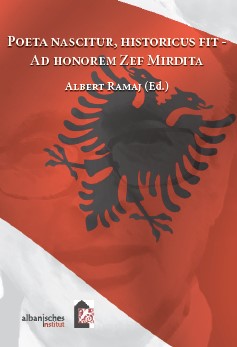
Shqyrtimi i mëposhtëm është ndërtuar mbi dokumentacionin arkivor të konsujve të Mbretërisë së Bashkuar të Britanisë së Madhe, që gjendeshin në vitin 1912 në qendrat e tre prej kater vilajeteve shqiptare nën Perandorinë Osmane, pikërisht në pragun e pavarësimit të Shqipërisë. Bëhet fjalë për dosjet të nënkonsullatës britanike në Shkup të drejtuar nga Peckham, nënkonsullatës britanike në Monastir nga e cila kanë raportuar Greig dhe Morgan dhe nënkonsullatës britanike në Shkodër drejtuar nga Nikolla Suma, shkodran, të cilave u janë shtuar analizat përgjithësuese të Konsullit të Përgjithshëm Harry Lamb në Selanik.
More...
Although Ernesto Cozzi is a little-known figure today, he was, at the time of his death in 1926, a person of national significance in Albania, the most important and most authoritative figure in the Catholic Church. He was the man who had planned and supervised the reform and recovery of the Church during the previous six years, after the severe disruptions of the First World War.
More...
The Hon. Aubrey Herbert M.P (1880-1923) was the second son of the Fourth Earl of Carnavon by his second marriage and was the half-brother of George Herbert, the Fifth Earl of Carnarvon who discovered the famed tomb of Tutankhamun in Egypt. He was educated at Eton and Balliol College in Oxford. In 1922 when he was only twenty-two years old, he was appointed honorary attaché at the British Embassy in Tokyo, and in 1904 he was transferred to Constantinople where he worked for the embassy until the outbreak of war in 1914. Over these years Herbert travelled much in Albania and Macedonia, where he made friends with many leading personalities especially among the Albanians.
More...
Nëse në vitin 1914 emigrimi europian arriti piken më të lartë në historinë e Argjentinës, llogaritet se 1,760.000 persona kanë hyrë brenda kufijve të shtetit në periudhen 1091- 1910, nuk duket e vështire të pranojmë se shqiptarët pak kanë ndikuar në atë shifër, pasi që ishin në numër më të vogël në mesin e “kombësive të tjera” sipas regjistrimit të tretë kombëtar të atij viti. Italianët, për ndryshim nga fqinjët e tyre më të afërt mesdhetar, vendoseshin në anë të kundërta, që me kalimin e kohës përbënin numrin më të madh të të arriturve në shtet.
More...